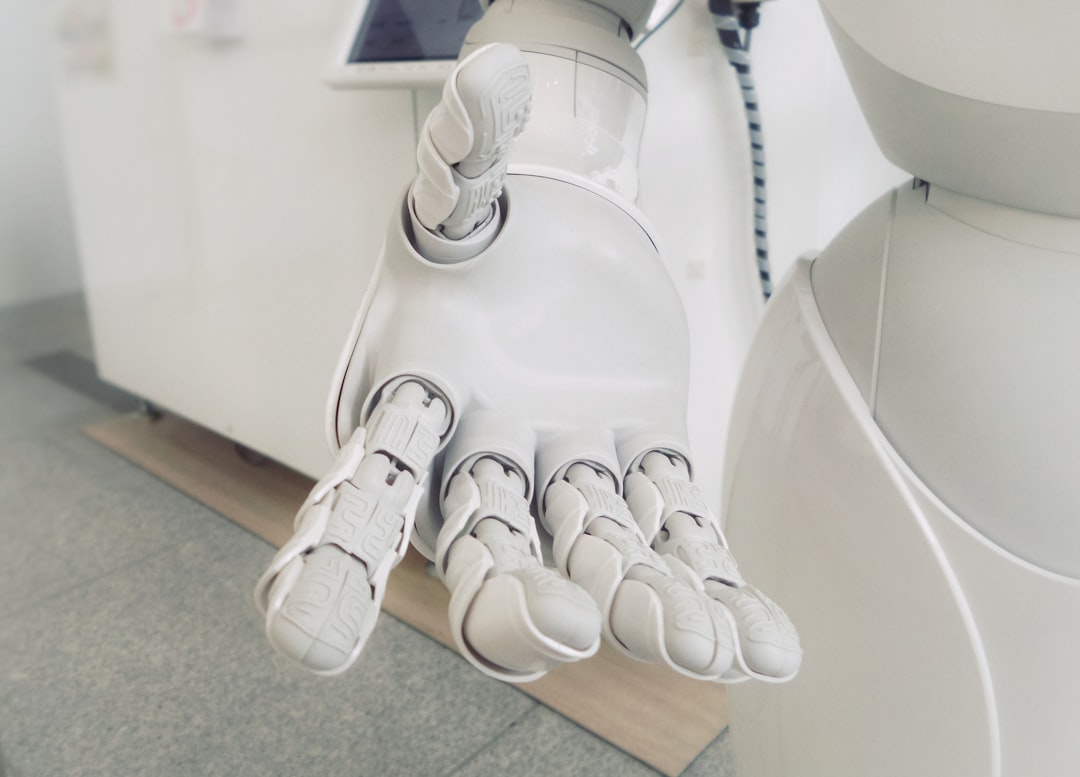Support our educational content for free when you purchase through links on our site. Learn more
Reinforcement Learning for Robotics Course: Your Ultimate Guide [2024] 🤖
Quick Answer: Looking to master reinforcement learning for robotics? Look no further! In this comprehensive guide, we’ll dive deep into the world of reinforcement learning for robotics, exploring key concepts, course details, and the benefits of taking this course. Plus, we’ll provide you with valuable tips and insights from our team of robotics engineers at Robot Instructions™. Let’s get started!
Table of Contents
- Quick Answer
- Quick Tips and Facts
- Background: The Evolution of Reinforcement Learning in Robotics
- Course Overview: Mastering Reinforcement Learning for Robotics
- Unit 1: Introduction to the Reinforcement Learning for Robotics Course
- Unit 2: Understanding the Reinforcement Learning Problem
- Unit 3: Dynamic Programming: Solving the Reinforcement Learning Problem
- Unit 4: Monte Carlo Methods: Learning from Experience
- Unit 5: Temporal-Difference Methods: Balancing Exploration and Exploitation
- Course Project: Applying Q-Learning to Solve a Maze Environment
- Course Summary: Reinforcement Learning for Robotics in a Nutshell
- FAQ
- Conclusion
- Recommended Links
- Reference Links
Quick Answer
If you’re looking to master reinforcement learning for robotics, the “Reinforcement Learning for Robotics” course is your ticket to success! This comprehensive course, offered by The Construct, covers all the essential concepts and techniques you need to know to excel in this exciting field. Led by Markus Buchholz, a Ph.D. in Robotics with extensive experience, this course is designed to provide you with a solid foundation in reinforcement learning and its application in robotics. With a focus on key topics like Markov Decision Process, Bellman equation, Dynamic Programming, Monte Carlo methods, SARSA, Q-learning algorithms, Python programming, and math, this course will equip you with the skills and knowledge to tackle real-world robotics challenges. So, are you ready to dive into the world of reinforcement learning for robotics? Let’s explore this course in more detail!
👉 CHECK PRICE on: The Construct
Quick Tips and Facts
- Course: “Reinforcement Learning for Robotics”
- Offered by: The Construct
- Creator: Markus Buchholz, Ph.D. in Robotics, M.Sc in Electronics and Computer Science, M.Sc in Economics
- Course focus: Reinforcement learning concepts, robotics, Markov Decision Process, Bellman equation, Dynamic Programming, Monte Carlo methods, SARSA, Q-learning algorithms, Python programming, math
- Simulation robots used: TurtleBot 2, Parrot Drone
- Expected learning outcomes:
- Learn reinforcement learning concepts applicable to robotics
- Understand the fundamental principles of Markov Decision Process, Bellman equation, Dynamic Programming, Monte Carlo methods, SARSA, and Q-learning algorithms
- Advance Python programming and math skills
- Course structure:
- Unit 1: Introduction to the Reinforcement Learning for Robotics Course
- Unit 2: The reinforcement learning problem
- Unit 3: Dynamic Programming problem
- Unit 4: Monte Carlo methods
- Unit 5: Temporal-Difference methods
- Course Project: Implement a Q-learning algorithm to solve a maze environment with 3 obstacles
- Who should take this course? Recommended for those interested in robotics and reinforcement learning
- Related courses:
Background: The Evolution of Reinforcement Learning in Robotics

Before we dive into the details of the “Reinforcement Learning for Robotics” course, let’s take a moment to understand the background and evolution of reinforcement learning in robotics. Over the years, robotics has witnessed significant advancements, enabling machines to perform complex tasks and interact with the environment more intelligently. One of the key driving forces behind these advancements is reinforcement learning.
Reinforcement learning is a branch of machine learning that focuses on training agents to make decisions and take actions in an environment to maximize a reward signal. In the context of robotics, reinforcement learning plays a crucial role in enabling robots to learn and adapt to their surroundings, making them more autonomous and capable of performing tasks without explicit programming.
By combining concepts from artificial intelligence, control theory, and psychology, reinforcement learning empowers robots to learn from their experiences, explore different strategies, and optimize their decision-making processes. This approach has revolutionized the field of robotics, enabling robots to navigate complex environments, manipulate objects, and even learn from human demonstrations.
Now that we have a brief understanding of the significance of reinforcement learning in robotics, let’s explore the “Reinforcement Learning for Robotics” course in detail.
Course Overview: Mastering Reinforcement Learning for Robotics
The “Reinforcement Learning for Robotics” course, offered by The Construct, is a comprehensive program designed to equip you with the knowledge and skills to excel in the field of reinforcement learning for robotics. Led by Markus Buchholz, a highly experienced robotics expert, this course covers a wide range of topics, from fundamental concepts to advanced algorithms and their practical applications.
Throughout the course, you’ll have the opportunity to work with simulation robots like the TurtleBot 2 and Parrot Drone, gaining hands-on experience in applying reinforcement learning techniques to real-world scenarios. By the end of the course, you’ll not only have a deep understanding of reinforcement learning principles but also be proficient in Python programming and math, essential skills for any aspiring robotics engineer.
Now, let’s take a closer look at each unit of the course to understand what you’ll learn and the skills you’ll acquire.
Unit 1: Introduction to the Reinforcement Learning for Robotics Course

In the first unit of the course, you’ll be introduced to the exciting world of reinforcement learning for robotics. You’ll gain a solid understanding of the course structure, learning objectives, and the tools and resources you’ll need to succeed. This unit sets the foundation for your journey into the realm of reinforcement learning and prepares you for the challenges ahead.
Unit 2: Understanding the Reinforcement Learning Problem
In the second unit, you’ll dive deep into the core concepts of reinforcement learning. You’ll explore the reinforcement learning problem, understand the Markov Decision Process (MDP), and learn about the Bellman equation. Through practical examples and simulations, you’ll develop a strong intuition for the fundamental principles that underpin reinforcement learning.
Unit 3: Dynamic Programming: Solving the Reinforcement Learning Problem
Dynamic Programming is a powerful technique for solving complex problems in reinforcement learning. In this unit, you’ll learn how to apply Dynamic Programming to solve the reinforcement learning problem. You’ll explore algorithms like Policy Iteration and Value Iteration, gaining hands-on experience in implementing these techniques to optimize decision-making processes.
Unit 4: Monte Carlo Methods: Learning from Experience
Monte Carlo methods provide a practical approach to learning from experience in reinforcement learning. In this unit, you’ll delve into Monte Carlo methods and understand how they can be used to estimate value functions and improve decision-making. Through simulations and coding exercises, you’ll gain a deep understanding of Monte Carlo methods and their applications in robotics.
Unit 5: Temporal-Difference Methods: Balancing Exploration and Exploitation
Temporal-Difference methods strike a balance between exploration and exploitation in reinforcement learning. In this unit, you’ll explore algorithms like SARSA and Q-learning, which are based on Temporal-Difference methods. You’ll learn how to apply these algorithms to real-world scenarios, enabling robots to learn and adapt to their environment through trial and error.
Course Project: Applying Q-Learning to Solve a Maze Environment
As part of the course, you’ll have the opportunity to work on a hands-on project that applies the concepts and techniques you’ve learned throughout the course. The project involves implementing a Q-learning algorithm to solve a maze environment with three obstacles. This project will challenge your problem-solving skills and reinforce your understanding of reinforcement learning in a practical setting.
Course Summary: Reinforcement Learning for Robotics in a Nutshell
In this comprehensive course, you’ll embark on a journey to master reinforcement learning for robotics. From understanding the core concepts to implementing advanced algorithms, you’ll gain the knowledge and skills to tackle real-world robotics challenges. With simulation robots like the TurtleBot 2 and Parrot Drone, you’ll have the opportunity to apply your learnings in a hands-on environment. By the end of the course, you’ll be equipped with the tools and expertise to excel in the exciting field of reinforcement learning for robotics.
FAQ

Is reinforcement learning used in robotics?
Absolutely! Reinforcement learning plays a crucial role in robotics. It enables robots to learn from their experiences, adapt to their environment, and make intelligent decisions without explicit programming. By combining reinforcement learning with robotics, we can create autonomous and adaptive robots that can perform complex tasks and interact with the world around them.
Does Irobot use reinforcement learning?
While Irobot is a leading brand in the field of robotics, their products primarily focus on home cleaning robots like Roomba. While Roomba robots utilize advanced algorithms and sensors to navigate and clean your home efficiently, they do not explicitly use reinforcement learning. However, reinforcement learning is a rapidly evolving field, and it’s possible that future iterations of Irobot products may incorporate reinforcement learning techniques.
How can I learn reinforcement learning?
To learn reinforcement learning, you can start by taking courses like the “Reinforcement Learning for Robotics” course offered by The Construct. Additionally, there are several online resources, tutorials, and books available that can help you dive deeper into the subject. It’s important to combine theoretical knowledge with hands-on practice to truly grasp the concepts and apply them to real-world scenarios.
Is reinforcement learning AI or ML?
Reinforcement learning is a subfield of machine learning (ML) that focuses on training agents to make decisions and take actions in an environment to maximize a reward signal. It is often considered a part of artificial intelligence (AI) as it enables machines to learn and adapt to their surroundings. Reinforcement learning combines elements of AI and ML to create intelligent and autonomous systems.
Read more about “Is Litter-Robot Connect Worth It? … 🐱”
Conclusion

Congratulations! You’ve reached the end of our ultimate guide to the “Reinforcement Learning for Robotics” course. Throughout this comprehensive course, you’ll gain a deep understanding of reinforcement learning concepts and their application in robotics. From Markov Decision Process to Dynamic Programming, Monte Carlo methods, and Temporal-Difference methods, you’ll develop the skills and knowledge to tackle real-world robotics challenges.
So, if you’re ready to embark on an exciting journey into the world of reinforcement learning for robotics, we highly recommend enrolling in the “Reinforcement Learning for Robotics” course offered by The Construct. With the guidance of Markus Buchholz, a highly experienced robotics expert, you’ll be well-equipped to excel in this rapidly evolving field.
Don’t miss out on this opportunity to master reinforcement learning for robotics! Enroll in the course today and unlock your potential in the world of robotics.
👉 CHECK PRICE on: The Construct
Recommended Links
Reference Links
- The Construct
- [Course] Reinforcement Learning for Robotics on The Construct
- [Course] Reinforcement Learning for Robotics on GitHub
- Robotic Applications in Home Cleaning
- Robotics
- Robotics Engineering
- Robots in Agriculture
- Robotic Applications in Entertainment
Remember, the future of robotics is in your hands! Happy learning and exploring the exciting world of reinforcement learning for robotics! 🚀🤖
